Resources
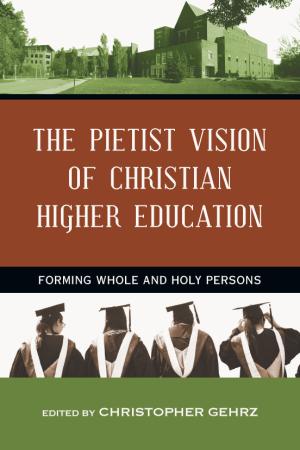
Click Here for Book Review Abstract: Pietism has long been ignored in evangelical scholarship. This is especially the case in the field of Christian higher education, which is dominated by thinkers in the Reformed tradition and complicated by the association of Pietism with anti-intellectualism. The irony is that Pietism from the beginning "was intimately bound up with education," according to Diarmaid MacCulloch. But until now there has not been a single work dedicated to exploring a distinctively Pietist vision for higher education. In this groundbreaking volume edited by Christopher Gehrz, scholars associated with the Pietist tradition reflect on the Pietist approach to education. Key themes include holistic formation, humility and openmindedness, the love of neighbor, concern for the common good and spiritual maturity. Pietism sees the Christian college as a place that forms whole and holy persons. In a pluralistic and polarized society, such a vision is needed now more than ever. (From the Publisher)
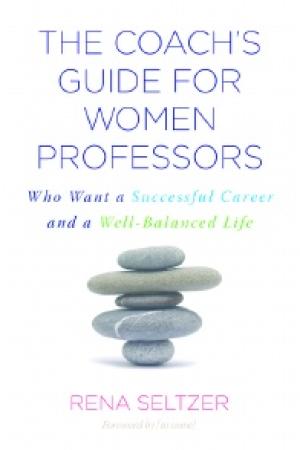
Click Here for Book Review Abstract: If you find yourself thinking or saying any of the following, this is a book you need to pick up. I know or suspect that I am underpaid, but I hate negotiating. I do everything else first and then write in the time left over. I’m not sure exactly what the promotion requirements are in my department. Since earning tenure, my service load has increased and my research is suffering. I don’t get enough time with my family. This is a practical guide for women in academe – whether adjuncts, professors or administrators – who often encounter barriers and hostility, especially if women of color, and generally carry a heavier load of service, as well as household and care responsibilities, than their male colleagues. Rena Seltzer, a respected life coach and trainer who has worked with women professors and academic leaders for many years, offers succinct advice on how you can prioritize the multiplicity of demands on your life, negotiate better, create support networks, and move your career forward. Using telling but disguised vignettes of the experiences of women she has mentored, Rena Seltzer offers insights and strategies for managing the situations that all women face – such as challenges to their authority – while also paying attention to how they often play out differently for Latinas, Black and Asian women. She covers issues that arise from early career to senior administrator positions. This is a book you can read cover to cover or dip into as you encounter concerns about time management; your authority and influence; work/life balance; problems with teaching; leadership; negotiating better; finding time to write; developing your networks and social support; or navigating tenure and promotion and your career beyond. (From the Publisher)
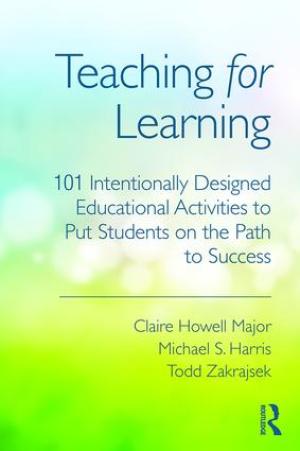
Click Here for Book Review Abstract: Despite a growing body of research on teaching methods, instructors lack a comprehensive resource that highlights and synthesizes proven approaches. Teaching for Learning fills that gap. Each of the one hundred and one entries: - describes an approach and lists its essential features and elements - demonstrates how that approach has been used in education, including specific examples from different disciplines - reviews findings from the research literature - describes techniques to improve effectiveness. Teaching for Learning provides instructors with a resource grounded in the academic knowledge base, written in an easily accessible, engaging, and practical style. (From the Publisher)
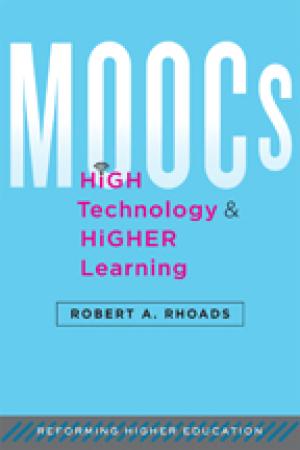
Click Here for Book Review Abstract: In MOOCs, High Technology, and Higher Learning, Robert A. Rhoads places the OpenCourseWare (OCW) movement into the larger context of a revolution in educational technology. In doing so, he seeks to bring greater balance to increasingly polarized discussions of massively open online courses (MOOCs) and show their ongoing relevance to reforming higher education and higher learning. Rhoads offers a provocative analysis of a particular moment in history when cultural, political, and economic forces came together with evolving teaching and learning technologies to bring about the MOOC. He argues persuasively that the OCW and MOOC movements have had a significant impact on the digitalization of knowledge and that they have helped expand the ways students and teachers interact and develop ideas collaboratively. He also critically analyzes the extensive media coverage of MOOCs while examining empirical studies of MOOC content delivery, the organizational system supporting the OCW/MOOC movement, and faculty labor concerns. Too often, technology advocates champion the MOOC movement as a solution to higher education’s challenges without recognizing the pedagogical, social, and economic costs. MOOCs, High Technology, and Higher Learning challenges many of the democratic claims made by MOOC advocates, pointing to vast inequities in the ways MOOCs are presented as an alternative to brick-and-mortar access for low-income populations. This book offers a clear-eyed perspective on the potential and peril of this new form of education. (From the Publisher)
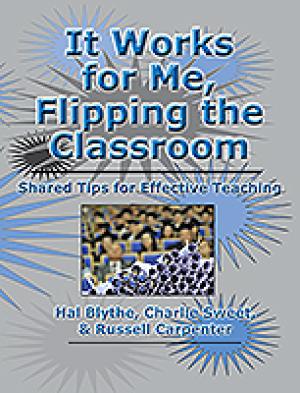
Click Here for Book Review Abstract: Our primary goal in assembling this collection is to convince faculty to experiment with the “flipped” classroom. Given the techtonic shift, providing educators with an abundance of electronic resources, as well as the nature of today’s students, every faculty member needs to consider the possibilities of the flip. Now that active learning has been demonstrated by research to be more effective than the pure sage-on-the-stage paradigm, flipping is a natural outgrowth with its recognition that classroom time needs to be dedicated to activities by the instructor, the individual students, and groups that promote a deeper learning of the material. This book offers a guide for those faculty members wishing to make the first steps, taking the instructor from preparation for the flipped class experience through actual out-of-class assignments, in-class activities, electronic resources available for support, and even assessment of student performance and class effectiveness. (From the Publisher)
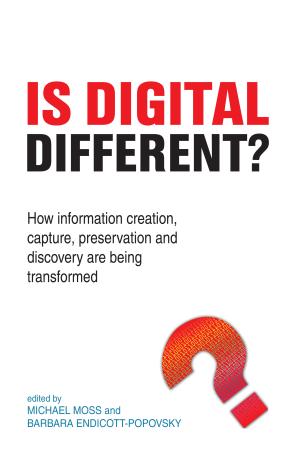
This edited collection brings together global experts to explore the role of information professionals in the transition from an analogue to a digital environment. The contributors, including David Nicholas, Valerie Johnson, Tim Gollins and Scott David, focus on the opportunities and challenges afforded by this new environment that is transforming the information landscape in ways that were scarcely imaginable a decade ago and is challenging the very existence of the traditional library and archive as more and more resources become available on line and as computers and supporting networks become more and more powerful. By drawing on examples of the impact of other new and emerging technologies on the information sciences in the past, the book emphasises that information systems have always been shaped by available technologies that have transformed the creation, capture, preservation and discovery of content.  Key topics covered include: • Search in the digital environment • RDF and the semantic web • Crowd sourcing and engagement between institutions and individuals • Development of information management systems • Security: managing online risk • Long term curation and preservation • Rights and the Commons • Finding archived records in the digital age. Is Digital Different? illustrates the ways in which the digital environment has the potential to transform scholarship and break down barriers between the academy and the wider community, and draws out both the inherent challenges and the opportunities for information professionals globally. (From the Publisher)
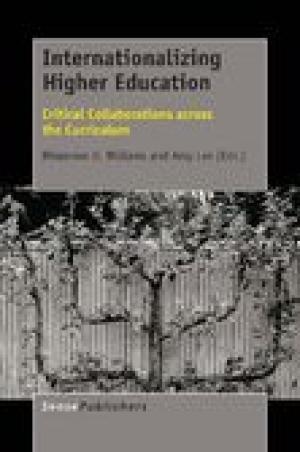
Click Here for Book Review Abstract: Higher education is facing unprecedented change as today’s graduates need particular skills, awareness, and knowledge to successfully navigate a complex and interconnected world. Higher education institutions and practitioners are under pressure to be attentive to internationalization initiatives that support increasingly diverse student populations and foster the development of global citizenship competencies which include, “problem-defining and solving perspectives that cross disciplinary and cultural boundaries” (Hudzik, 2004, p. 1 as cited in Leask & Bridge, 2013). Internationalizing Higher Education: Critical Collaborations across the Curriculum is for current and future faculty, student affairs staff, and administrators from diverse disciplinary, institutional, and geographic contexts. This edited volume invites readers to investigate, better understand, and inform intercultural pedagogy that supports the development of mindful global citizenship. This edited volume features reflective practitioners exploring the dynamic and evolving nature of intercultural learning as well as the tensions and complexities. Contributors include institutional researchers, directors and key implementers of EU/Bologna process in Poland (one of the newest members and one that is facing unprecedented change in the diversity of its students), international partners in learning abroad programs, and scholars and instructors across a range of humanities, STEM, and social sciences. (From the Publisher)
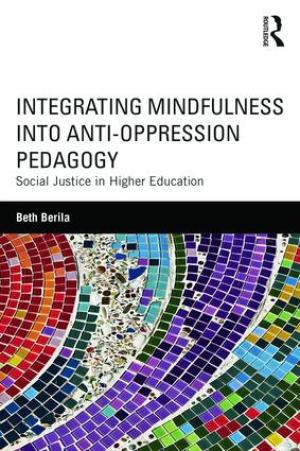
Click Here for Book Review Abstract: Drawing from mindfulness education and social justice teaching, this bookexplores an anti-oppressive pedagogy for university and college classrooms. Authentic classroom discussions about oppression and diversity can be difficult; a mindful approach allows students to explore their experiences with compassion and to engage in critical inquiry to confront their deeply held beliefs and value systems. This engaging book is full of practical tips for deepening learning, addressing challenging situations, and providing mindfulness practices in anti-oppression classrooms. Integrating Mindfulness into Anti-Oppression Pedagogy is for all higher education professionals interested in pedagogy that empowers and engages students in the complex unlearning of oppression. (From the Publisher)
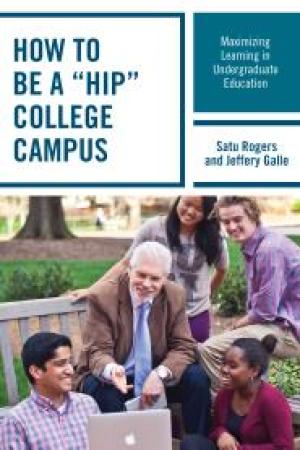
Click Here for Book Review Abstract: High Impact Practices (HIP). Through the voices of dozens of seasoned college faculty and junior and senior students, this book shares insights and practical examples on how a college campus can be “HIP”—utilizing high-impact educational practices widely and effectively. The book’s strength is numerous hands-on examples about HIPs’ implementation in and out of the classroom. HIPs have been proven to improve student learning, yet practical examples of their implementation are still few. This book fills that gap. Covering seven (sets of) HIPs, we ask such questions as: What do creative assignments based on active learning look like? How does one teach the “whole student?” How does and should student diversity affect teaching? The book is most beneficial to current and future instructors of college courses, especially those wanting to use more active learning pedagogies. It will also benefit university administrators and staff by identifying campus priorities, culture, and structure that support the effective implementation of HIPs. It makes the case for a campus-wide adoption of high-impact practices, across disciplines and in both academic and co-curricular life. (From the Publisher)
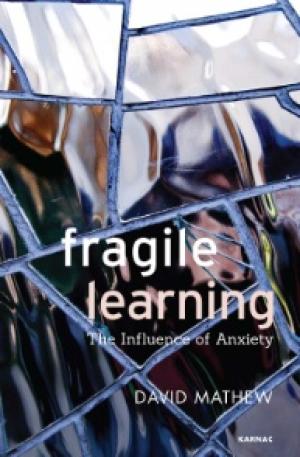
Click Here for Book Review Abstract: What are the barriers and obstacles to adults learning? What makes the process of adult learning so fragile? And what exactly do we mean by fragile learning? This book addresses these questions in two ways. In Part One, it looks at challenges to learning, examining issues such as language invention in a maximum security prison, geography and bad technology, and pedagogic fragility in Higher Education. Through a psychoanalytic lens, Fragile Learning examines authorial illness and the process of slow recovery as a tool for reflective learning, and explores ethical issues in problem-based learning. The second part of the book deals specifically with the problem of online anxiety. From cyberbullying to Internet boredom, the book asks what the implications for educational design in our contemporary world might be. It compares education programs that insist on the Internet and those that completely ban it, while exploring conflict, virtual weapons and the role of the online personal tutor. The book also examines the issue of time as a barrier to learning and its links to unconscious thinking, as well as defining fragility in a summative essay. Using real-life examples, originality and wit, Fragile Learning is an important contribution to the field of psychoanalysis and pedagogy. (From the Publisher)